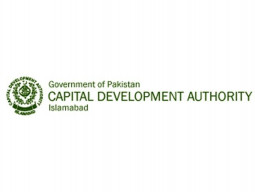
KARACHI: There has been a rise in the number of madrassas in Pakistan lately. The number of madrassas in 1947 was 300, whereas today the numbers are estimated to be 35,000.
There is no public record of the number of registered and unregistered madrassas in Pakistan. There is no distinction between a maktab and madrassa either.
The disparity exists in terms of government records as well, as it indicates that 9.3 per cent of all school-going children are madrassa students. However, the World Bank indicates that these children are less than one per cent.
Read: A sorry state of affairs: ‘40% of Hyderabad’s children do not go to school’
These are the salient features of a report published by HIVE Karachi, titled 'The Madrassa Conundrum'.
The report goes on to say that external stimuli have always been the source of madrassa reforms in Pakistan rather than an internal consistent stance. HIVE's lead researcher, Umair Khalil, identified the 9/11 attacks, the London bombings of 2007 and the recent Army Public School attack in Peshawar as the key stimuli that provoked the government to take action.
Answering a question about the stratified nature of madrassa education, Riaz Sheikh of Szabist disagreed that modern madrassa education has anything to do with class or economic status. "The issue is not the madrassa, but its politicisation by the state that gives it the perception of what it is today," he explained.
Read: IHC orders action against madrassa
How the Deobandi school of thought gained popularity was an interesting aspect of the discussion. Historian Mubarak Ali was of the opinion that, in the early days of Pakistan, the state had nothing to do with these madrassas and only a handful existed. Sheikh further explained the phenomenon as an ideology that supported jihadis. "In the wake of the war of 1857, the British opted for an anti-jihadist approach. Thus, Ahmedis and Barelvis mushroomed as a consequence of this," he explained.
The report also suggests reforms to the government for the proper management of madrassas. Dr Mubarak, however, opined that unless they are introduced by the parliament in the form of legislation, he does not see any reformation likely in the near future. "The recent encounter of Malik Ishaq and the national action plans are only a means to calm down the emotions of the people," he claimed.
Published in The Express Tribune, August 1st, 2015.






















































COMMENTS
Comments are moderated and generally will be posted if they are on-topic and not abusive.
For more information, please see our Comments FAQ